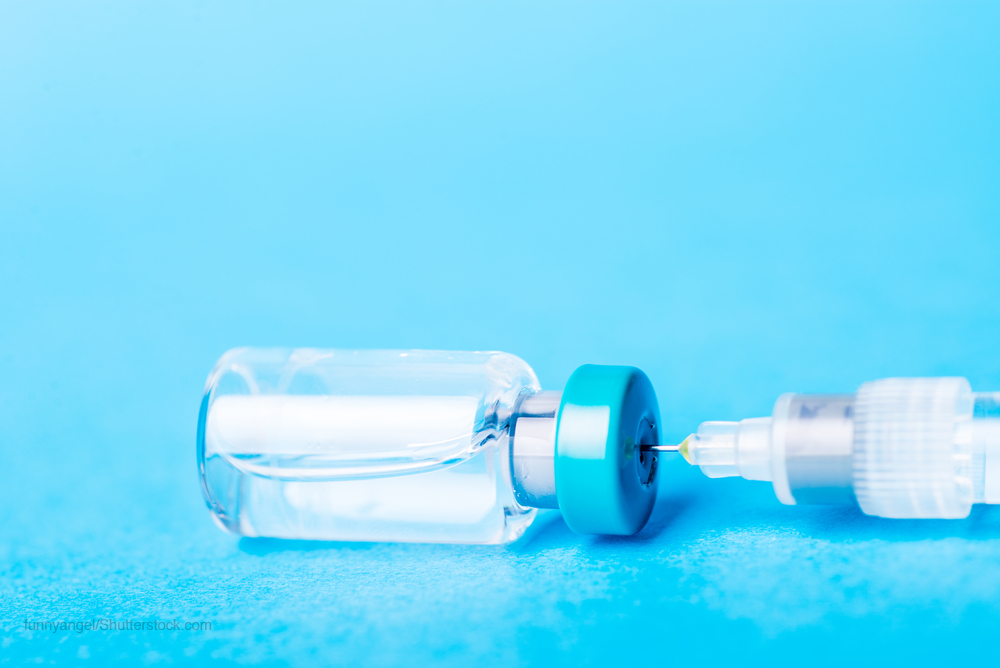Syringe supply shortage could challenge Covid-19 vaccine distribution
A needle-free Covid-19 vaccine delivery option will help ensure greater compliance.

Case counts, hospitalizations, and stay-at-home orders have rightfully been dominating COVID-19 news coverage, but there is a serious challenge looming on the horizon that few are aware of and even fewer are talking about: a syringe shortage.
A worldwide shortage of hypodermic needles and syringes could threaten nations’ abilities to deliver a COVID-19 vaccine to their citizens during a mass global inoculation, once a vaccine is approved. In a letter to the White House Coronavirus Task Force, one Trump administration official estimated that the United States alone would require 850 million needles and syringes to deliver COVID-19 and flu vaccines.
“Our current inventory of these supplies is limited and, under current capabilities, it would take up to two years to produce this amount of specialized safety needles,” White House Trade and Manufacturing Policy Director Peter Navarro wrote earlier this year. “We may find ourselves in a situation where we have enough vaccine, but no way to deliver all of it.”
As of early May, the Strategic National Stockpile held just 15 million syringes, two percent of the required amount, according to a complaint filed by Rick Bright who served as the director of HHS Biomedical Advanced Research and Development Authority. Since then, the federal government has signed contracts with four companies to produce more syringes, but those contracts call for 420 million needles through the end of 2021, USA Today reported.
With a vaccine—or multiple vaccines—potentially expected to be available sometime next year, there may not be an adequate supply of needles and syringes to administer it. However, there is an alternative to traditional needles and syringes that could ease the shortage: needle-free injection technology.
Needle-free injection technology is designed around a high-pressured, spring-driven, stainless-steel piston and works by using a specially-designed, needle-free syringe to inject liquid medication subcutaneously, intramuscularly, or intradermally via a specialized device that results in greater comfort to patients.
Following are several potential advantages provided by needle-free injection technology.
Reduces shortages of traditional needles and syringes
COVID-19 has already proven its capacity to create medical equipment shortages, with supplies of face masks, gowns, and other personal protective equipment (PPE) stretched thin in the early days of the pandemic. Several months into the U.S. response to the virus, the supply chain issues that led to these shortages have still not been adequately addressed, according to the National Rural Health Association. It is critical that we don’t repeat the same mistakes with drug-delivery devices that we saw with PPE. By providing an alternative to traditional needles and syringes, needle-free injection technology can help diversify the supply chain, reducing the likelihood that suppliers will be overwhelmed with demand from governments across the globe.
Lessens the effects of needle-phobia to improve vaccine compliance:
Fear of needles is a generally underappreciated health issue that can result in many people avoiding needed care, particularly vaccines. Citing several other studies, research published in the journal Cognitive Behaviour Therapy noted that fear of needles is common in children, ranging between 33% and 63%; and in adults, ranging from 14% to 38%. Needle-phobia contributes to negative health experiences for patients and caregivers.
Patients with chronic conditions such as diabetes and multiple sclerosis—precisely those who are most at-risk of developing serious complications as a result of COVID-19–are particularly vulnerable when they are needle-phobic, because they may base important treatment decisions on fear, as opposed to medical recommendations, according to the researchers. By providing a needle-free option to deliver a COVID-19 vaccine, governments can boost compliance among needle-phobic individuals and promote greater “herd immunity.” Additionally, scar tissue from multiple injections is reduced greatly as there is no disruption of tissue caused from a needle-free syringe.
Strengthen healthcare-worker safety:
While the precise amount of needlestick injuries experienced by U.S. healthcare workers is unknown, estimates range from 600,000 to 800,000 each year, according to the U.S. Centers for Disease Control and Prevention (CDC), with about half of these injuries going unreported.
Support staff experience the majority of needlestick injuries, which can result in “severe and long-lasting” emotional impact, according to the CDC. These injuries are very costly, resulting in an estimated cost of $3,042 per victim annually, with the majority of these expenses attributed to laboratory fees for testing exposed employees, associated labor and counseling, and post-exposure follow-ups. Needle-free injection technology holds the potential to minimize risk to staff by giving them a safe, user-friendly option for administering liquid medications.
Given the emotional and economic toll the COVID-19 pandemic has already caused, we can’t afford to miss any opportunities to begin mitigating its damage. A vaccine – when it becomes available – holds the potential to usher in a return to normalcy that many American desperately crave. Adding a needle-free delivery option will help ensure greater vaccine compliance and may result in the difference between many needle-phobic people obtaining the vaccine versus the possibility of contributing to the spread of the novel coronavirus throughout their communities.
About the Author
Scott E. McFarland, JD, serves as CEO of IntegriMedical LLC. An actively practicing intellectual property attorney since 1997, Scott has held top- level positions at multiple leading health care organizations including: the Hawaii Health Systems Corporation (HHSC) where he served as CEO, Cleveland Clinic where he served as its first President of Population Health, and Healthways where he led innovation, product development, and product management.
Newsletter
Optimize your practice with the Physicians Practice newsletter, offering management pearls, leadership tips, and business strategies tailored for practice administrators and physicians of any specialty.